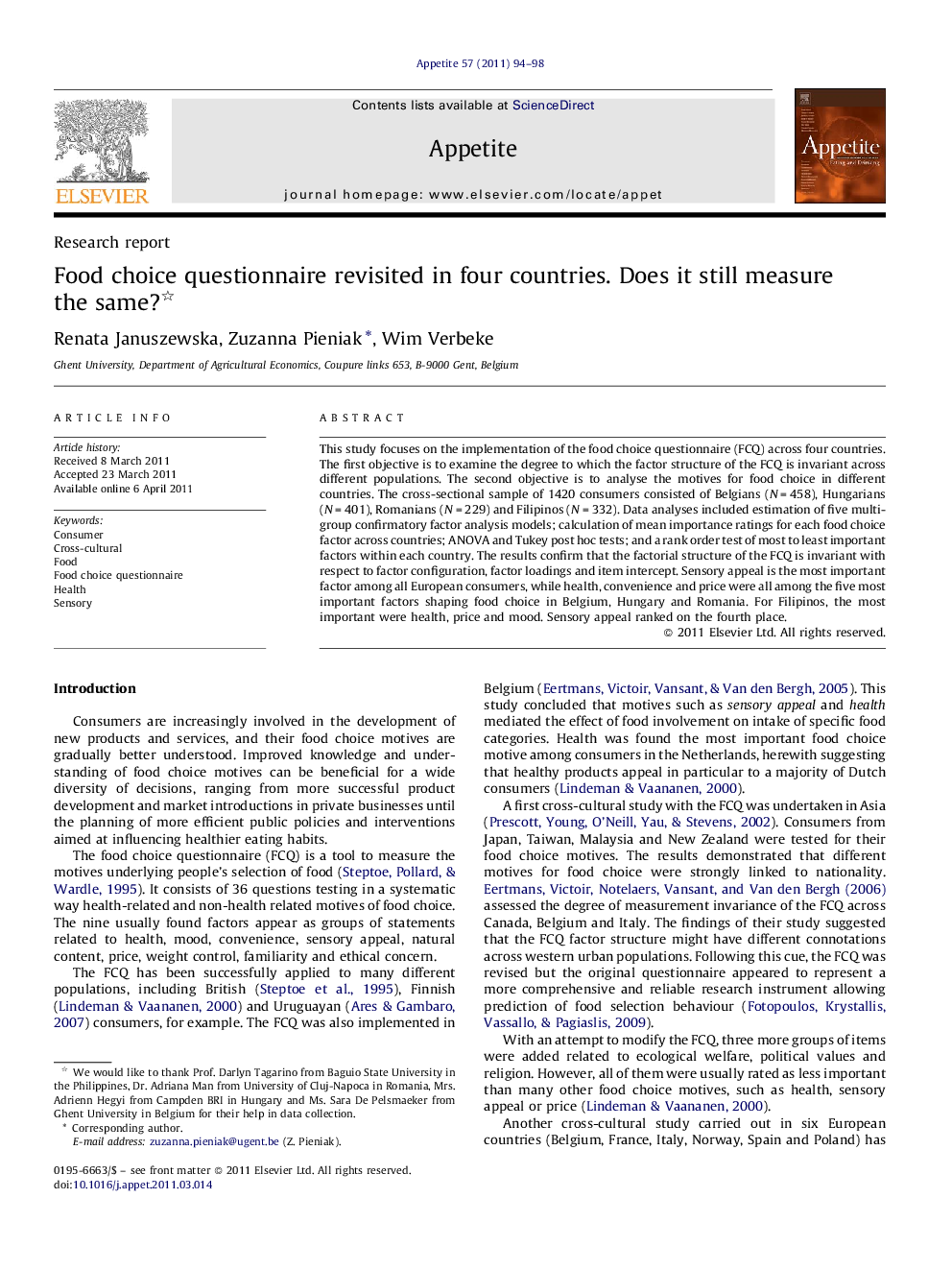| کد مقاله | کد نشریه | سال انتشار | مقاله انگلیسی | نسخه تمام متن |
|---|---|---|---|---|
| 940283 | 924886 | 2011 | 5 صفحه PDF | دانلود رایگان |

This study focuses on the implementation of the food choice questionnaire (FCQ) across four countries. The first objective is to examine the degree to which the factor structure of the FCQ is invariant across different populations. The second objective is to analyse the motives for food choice in different countries. The cross-sectional sample of 1420 consumers consisted of Belgians (N = 458), Hungarians (N = 401), Romanians (N = 229) and Filipinos (N = 332). Data analyses included estimation of five multi-group confirmatory factor analysis models; calculation of mean importance ratings for each food choice factor across countries; ANOVA and Tukey post hoc tests; and a rank order test of most to least important factors within each country. The results confirm that the factorial structure of the FCQ is invariant with respect to factor configuration, factor loadings and item intercept. Sensory appeal is the most important factor among all European consumers, while health, convenience and price were all among the five most important factors shaping food choice in Belgium, Hungary and Romania. For Filipinos, the most important were health, price and mood. Sensory appeal ranked on the fourth place.
► Food Choice Questionnaire (FCQ) is an efficient tool to analyse food choice motives in different countries.
► The factorial structure of the FCQ is invariant with respect to factor configuration, factor loadings and item intercept.
► Sensory appeal is the most important food choice motive among European consumers.
Journal: Appetite - Volume 57, Issue 1, August 2011, Pages 94–98